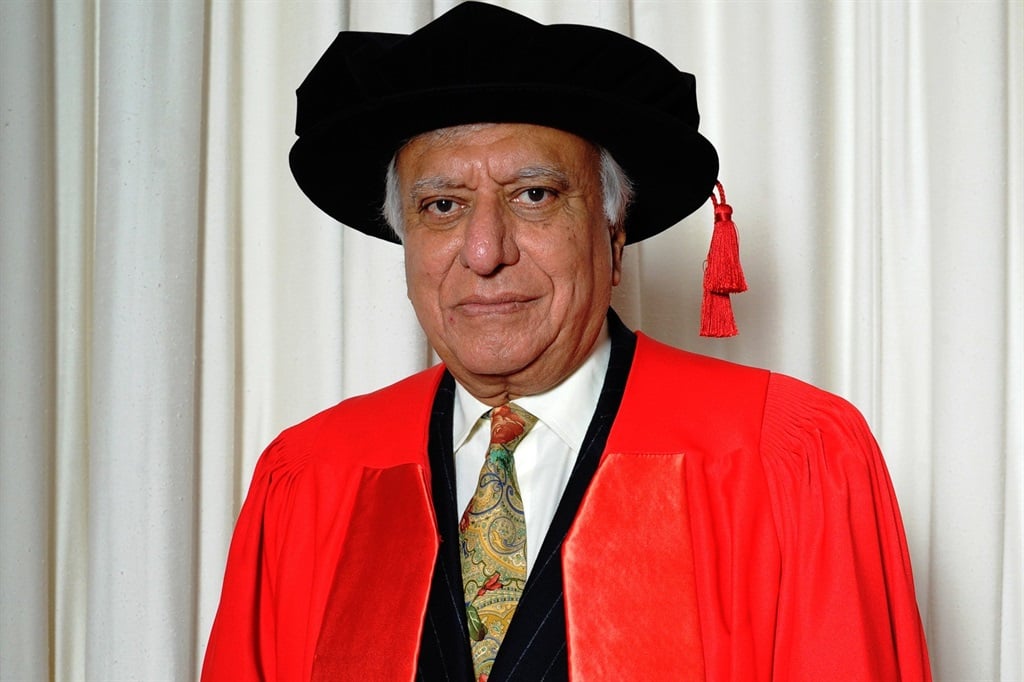TRIBUTE | Farewell to Jerry Coovadia, the man who took a militant stand against Aids denialism | News24
TRIBUTE | Farewell to Jerry Coovadia, the man who took a militant stand against Aids denialism News24


Professor Jerry Coovadia, HIV/AIDS Expert and Human Rights Activist, Passes Away at 83

Professor Jerry Coovadia, an HIV/AIDS expert and a prominent figure in the struggle for liberation and human rights, has died at the age of 83.
X/@PresidencyZA
TAC Co-founder Zackie Achmat Reflects on the Life of Professor Hoosen ‘Jerry’ Coovadia
Professor Hoosen ‘Jerry’ Coovadia, one of the most decent and kind human beings I have ever met, spent a great life among us.
The paediatrician, academic medicine professor, HIV specialist, and dedicated public health official died on Wednesday at the age of 83.
Commitment to people, science, and evidence led him to socialism and the ANC.
Together with Dr Zubeida Hamed, a dermatologist who specialized in skin cancers, Jerry became a leader in science and politics.
I met Jerry Coovadia in 1981 when the late Cecyl Esau and I organized the funeral of Hennie Ferus under the leadership of Johnny Issel. Hennie was an underground member of the banned ANC. Together with Liz Abrahams, Rita Ndzanga, Oscar Mpetha, Jan Theron, and others, Jerry spoke under the flag of the ANC at significant risk to all of them. He was a leader in the Natal Indian Congress and ANC, along with countless others.
Politics was my first introduction to this doctor. Little did I know.
Pillars of the TAC
I met Jerry Coovadia again as a scientist and professor of paediatric immunology in 2000 in the resistance to HIV denialism and Thabo Mbeki’s malicious war against science.
Jerry and two of his great comrades, Quarraisha Abdool Karim and her husband Saleem Abdool Karim, both professors, helped to build and lead a movement of public health officials against HIV denialism locally and internationally. They were pillars of the Treatment Action Campaign.
Jerry’s resistance arose from witnessing the preventable HIV-related deaths and new infections of infants, children, women, and men. Mbeki’s callousness led to millions of new infections, repeated painful illnesses, death, and the destruction of family life.
Never was a doctor so vilified as Jerry Coovadia in the ANC for his implacable and quietly militant stand against Thabo Mbeki.
Remembering a Life of Dedication
I have deep love for Jerry and Zubeida, one that compels me to remember him and to bring his life into the consciousness of every person I reach who values the right to life, dignity, health, equality, and freedom from hunger, poverty, and inequality.
One can never overuse the poem “In Memory of Sigmund Freud” by WH Auden when saying goodbye to a friend and comrade who lived a life of reason, conscience, and commitment.
“When there are so many we shall have to mourn,
when grief has been made so public, and exposed
to the critique of a whole epoch
the frailty of our conscience and anguish,
of whom shall we speak? For every day they die
among us, those who were doing us some good,
who knew it was never enough but
hoped to improve a little by living.
Such was this doctor: still at eighty he wished
to think of our life from whose unruliness
so many plausible young futures
with threats or flattery ask obedience,
but his wish was denied him: he closed his eyes
upon that last picture, common to us all,
of problems like relatives gathered
puzzled and jealous about our dying.”
Love and solidarity to Zubie, his wife, children Anushka, Imraan, their families, and extended families including his cousin Nasima Coovadia.
– Zackie Achmat is co-founder of the TAC.
Disclaimer: News24 encourages freedom of speech and the expression of diverse views. The views of columnists published on News24 are therefore their own and do not necessarily represent the views of News24.
SDGs, Targets, and Indicators Analysis
1. Which SDGs are addressed or connected to the issues highlighted in the article?
- SDG 3: Good Health and Well-being
- SDG 10: Reduced Inequalities
- SDG 16: Peace, Justice, and Strong Institutions
The article discusses the life and contributions of Professor Jerry Coovadia, who was an HIV/AIDS expert, anti-apartheid activist, and advocate for human rights. These issues are directly connected to SDG 3, which aims to ensure healthy lives and promote well-being for all at all ages. Additionally, the article mentions Coovadia’s commitment to socialism and the ANC, highlighting the fight against inequalities (SDG 10) and the pursuit of peace, justice, and strong institutions (SDG 16).
2. What specific targets under those SDGs can be identified based on the article’s content?
- SDG 3.3: By 2030, end the epidemics of AIDS, tuberculosis, malaria, and neglected tropical diseases and combat hepatitis, water-borne diseases, and other communicable diseases.
- SDG 10.3: Ensure equal opportunity and reduce inequalities of outcome, including by eliminating discriminatory laws, policies, and practices and promoting appropriate legislation, policies, and action.
- SDG 16.6: Develop effective, accountable, and transparent institutions at all levels.
The article indirectly addresses these targets by highlighting Coovadia’s work as an HIV/AIDS expert and his fight against HIV denialism. His contributions align with the goal of ending the AIDS epidemic (SDG 3.3). Additionally, Coovadia’s commitment to socialism and the ANC reflects the pursuit of equal opportunity and reduced inequalities (SDG 10.3). Lastly, his involvement in politics and activism contributes to the development of effective, accountable, and transparent institutions (SDG 16.6).
3. Are there any indicators mentioned or implied in the article that can be used to measure progress towards the identified targets?
- Number of new HIV infections and AIDS-related deaths
- Existence of discriminatory laws, policies, and practices
- Level of transparency and accountability in institutions
The article does not explicitly mention specific indicators, but it implies the need to measure the number of new HIV infections and AIDS-related deaths to assess progress towards ending the AIDS epidemic (SDG 3.3). Additionally, the article highlights the importance of eliminating discriminatory laws, policies, and practices, indicating the need to measure their existence or absence (SDG 10.3). Lastly, the article suggests the importance of transparency and accountability in institutions, which can be measured through indicators such as public trust in institutions and the presence of mechanisms for oversight and accountability (SDG 16.6).
Table: SDGs, Targets, and Indicators
| SDGs | Targets | Indicators |
|---|---|---|
| SDG 3: Good Health and Well-being | 3.3: By 2030, end the epidemics of AIDS, tuberculosis, malaria, and neglected tropical diseases and combat hepatitis, water-borne diseases, and other communicable diseases. | Number of new HIV infections and AIDS-related deaths |
| SDG 10: Reduced Inequalities | 10.3: Ensure equal opportunity and reduce inequalities of outcome, including by eliminating discriminatory laws, policies, and practices and promoting appropriate legislation, policies, and action. | Existence of discriminatory laws, policies, and practices |
| SDG 16: Peace, Justice, and Strong Institutions | 16.6: Develop effective, accountable, and transparent institutions at all levels. | Level of transparency and accountability in institutions |
Behold! This splendid article springs forth from the wellspring of knowledge, shaped by a wondrous proprietary AI technology that delved into a vast ocean of data, illuminating the path towards the Sustainable Development Goals. Remember that all rights are reserved by SDG Investors LLC, empowering us to champion progress together.
Source: news24.com

Join us, as fellow seekers of change, on a transformative journey at https://sdgtalks.ai/welcome, where you can become a member and actively contribute to shaping a brighter future.







